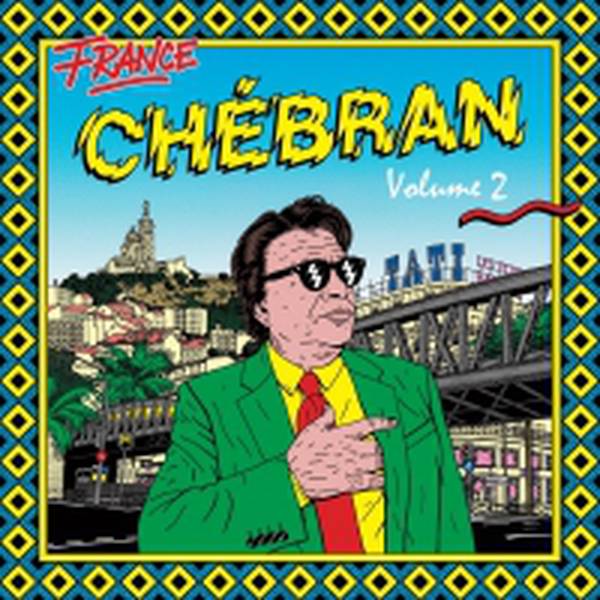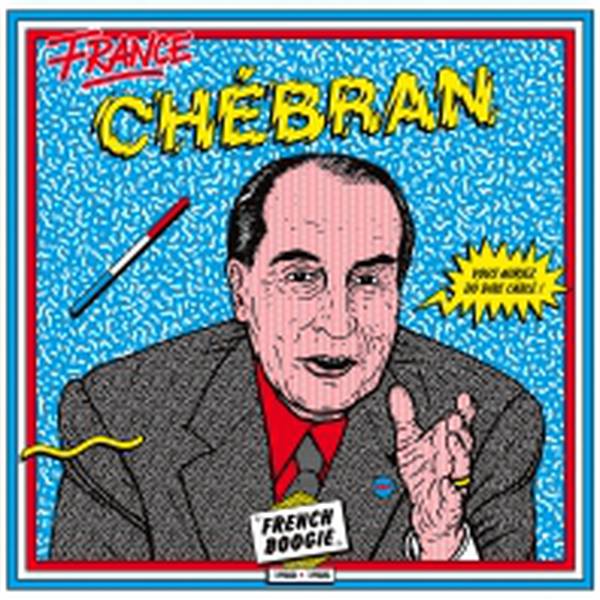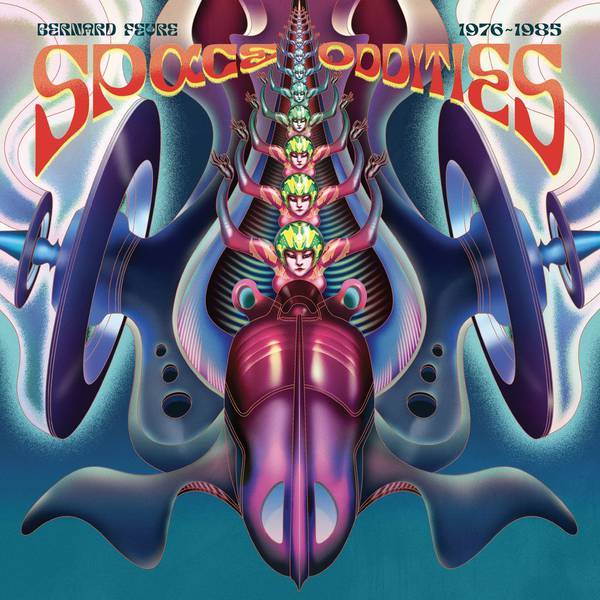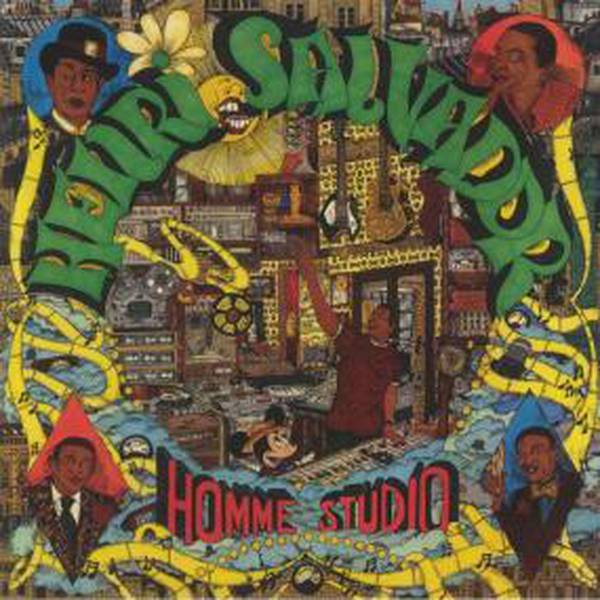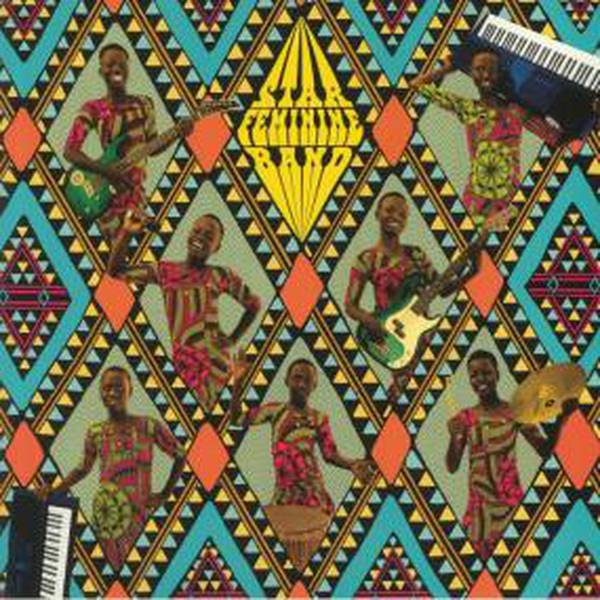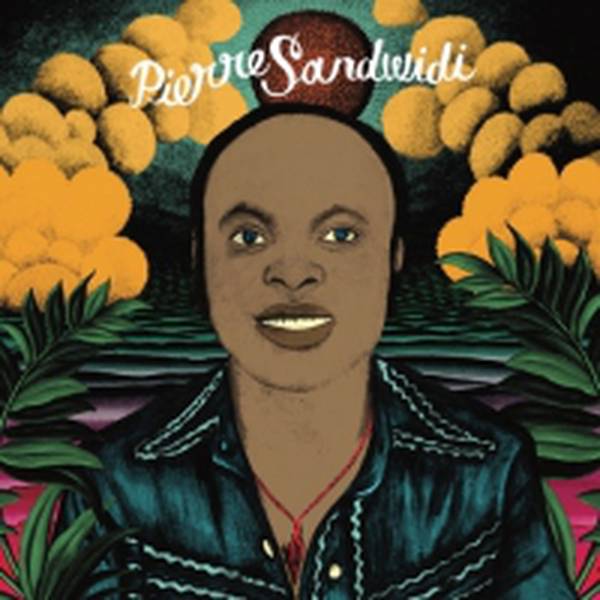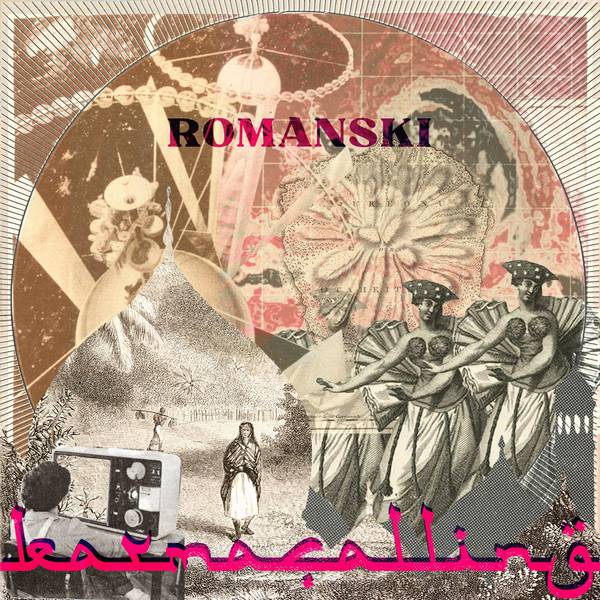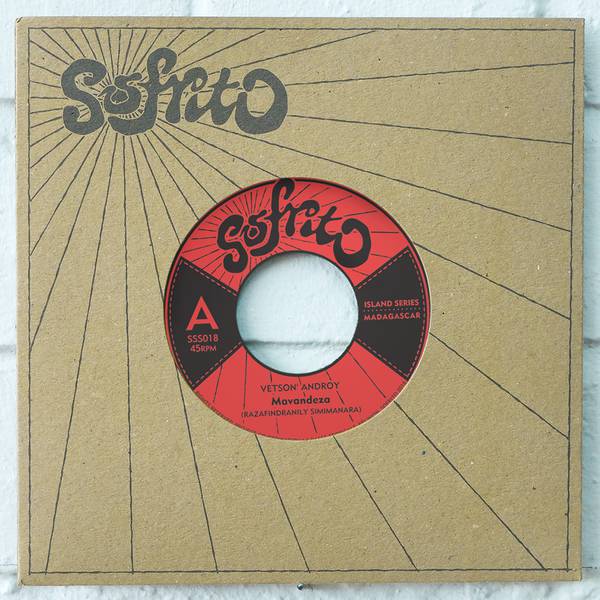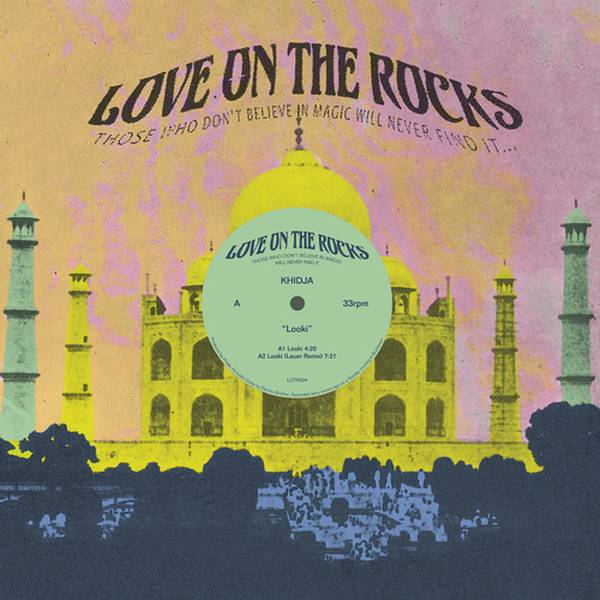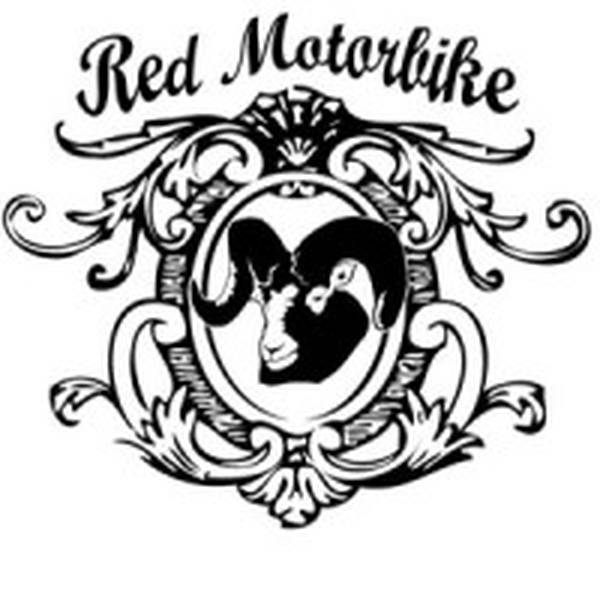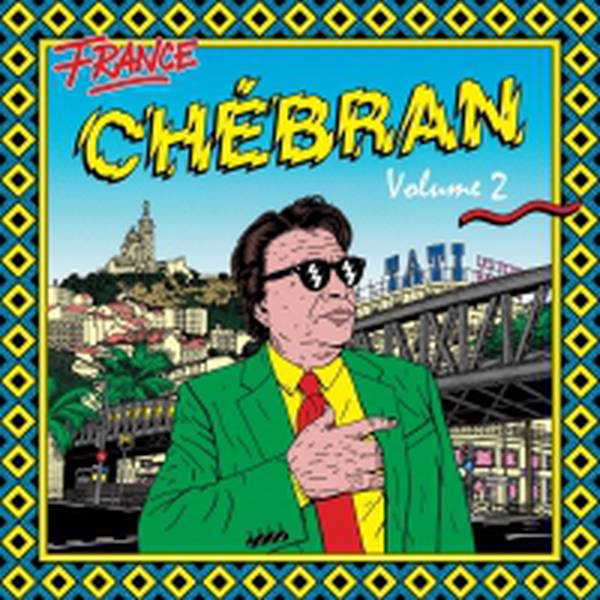
Tax included, Shipping not included
The French in the 80s were not faint-hearted: as some threw themselves heart and soul into music or business, others wouldn’t mind going bottomless to get themselves noticed… While Bernard Tapie soon realized his own fortune was rather to be found in business, many music-loving dreamers already imagined themselves in the sun, in an enchanting world made of funky rhythms and synthesizers.
.
A real hub for such multi-cultural productions, the city of Lyons was home to many labels, such as l’Étoile Verte, Mosquito, SEDICAV, Mérabet, Bouarfa or El Bahia. Little by little, this particularly prolific scene reached a new audience: Nordine Staifi or Shams Dinn won fame on vinyl , Carte de Séjour got John Peel’s attention… The latter – an Arabic rock band led by Rachid Taha – even became infatuated with Charles Trenet’s Douce France. Their cover, tinged with an Eastern feel and hint of irony, was stupidly censored in France at the time.
Elsewhere, however, hands of friendship were extended between new-comers and “true” French people. In Rouen, Bernard Guégan, a sociocultural worker in a center for occupational integration, initiated girls of North African descent into rap for a contest launched by a magazine. Noticed through Vally from the famous duo Chagrin d’Amour, the resulting group was put on tape by producer Slim Pezin under the name of Ettica. But the – limited – media attention was no use: this single, too cosmopolitan, failed to benefit from an expected social mobility that would have allowed the four teenagers to get themselves out of the ghetto… This song, mixing French and Arabic on a single synthetic melody, touchingly reminds of the beginnings of French hip-hop , far from the misogyny and violence that sometimes represent it today.
Radio, I love you
With the rise of independent radios, recently licensed by François Mitterrand’s government, the airwaves reflected more than ever the diversity of musics in France. Some then-unknown African or overseas genres were given a place on Radio Nova’s Sonomundial show. Carbone 14’s host Phil Barney tried his hand at spoken word between American-funk songs, and the latest hits from Maghreb delighted Radio Beur’s listeners. Numerous contests also helped promote new starlets such as Marie José Fa or Ettica, while some more obscure stations broadcast loads of self-produced artists (Creole Star, Manu…) to a circle of insiders.
Of course, such a vivid emulation was also noticed by music business professionals of the time, who started spicing anything up with a touch of exoticism to boost sales. Some seasoned veterans of groove also stepped onto this path with some nice period productions for themselves or for others.
Slim Pezin (Ettika) Already renown in the disco-funk niche thanks to records by Arpadys or Voyage (as a member of the latter), Slim Pezin was a major arranger for the Parisian Who’s Who in the 70s and 80s (Claude François, Mylène Farmer, Johnny Hallyday…). Besides, he created a lot of sound design for such labels as Telemusic or CBS. This experienced session musician, married to a Cameroonian woman and friends with Manu Dibongo and Bernard Estardy, had a taste for groove and Afro sounds. In the early 80s, he launched the band Kassav’s career and produced songs, among others, for Chagrin d’Amour and Ettika.
Sammy Massamba A real icon of Congolese music, Sammy Massamba started his career in the 60s as a member of the Protestant singing group Les Cheveux Crépus. After being initiated into guitar playing, this jack-of-all-trades soon incorporated rumba, afro-funk or even disco influences to his compositions. Much demanded in Parisian studios during the 70s thanks to his quality guitar playing, he is responsible for several Afro hits, the most famous of which being “Propriété Privée”.
JM Black With an uncle running a radio station and a cousin who was an exceptional bass player (Vicky Edimo), this Cameroonian from Douala had been immersed in music since his earliest childhood. Settling in France in the early 80s to study, he earned his stripes in the band Overdrive along with the Accardo brothers. Their productions sounded so New Yorkish they were nicknamed the “Little Americans”; they released a first, funky 45 and toured through France before splitting and moving on to new adventures. Launched in 1984, while break dancing was already the new fashion, JM Black’s colorful “Lipstick”, unfortunately went unnoticed… until today!
Marc Moulin (Alec Mansion) A discreet jazz musician and a political commentator on TV, Marc Moulin was mostly known for being one of the clowning musicians in Telex. As soon as 1978, this Belgian joke of a band composed such precursory synthetic disco that it made it last at the 1980 Eurovision Song Contest. As a token of quality, many stars such as Lio, Alain Chamfort or Alec Mansion then sought Marc’s talent for production to create a bunch of hits (“Les Brunes Comptent Pas Pour Des Prunes”, “Trop Triste”…).
Philippe Chany In 1981, along with Phil Krootchey and Fred Versailles, the young Philippe Chany founded an electronic funk band called Love International, one of the voices of which was his longtime high-school friend Alain Chabat. Sharing a taste for schoolkid pranks with the famous French humorist, he then created a number of sound designs and jingles for the Canal+ group (Les Nuls, Nulle Part Ailleurs, La Cité De La Peur…) as well as an Arabic parody of Caroline Loeb’s hit “C’Est La Ouate” under the title “C’Est Le Kawa”. Joking aside, his taste for Eastern musics can also be witnessed on “Rive Gauche”, his only personal album released in 1983.
Details
Release Date
11.06.2018
Cat No
BB 105LP
Produkt- und Herstellerinformationen
Tracklist
Track 1
Track 2
Track 3
Track 4
Track 5
Track 6
Track 7
Track 8
Track 9
Track 10
Track 11
Track 12
Track 13
Track 14
Track 15
Track 16
Track 17
